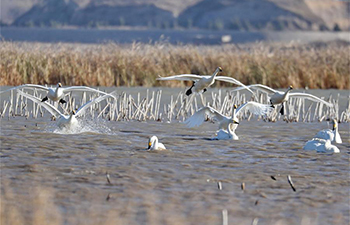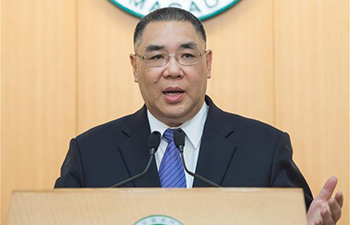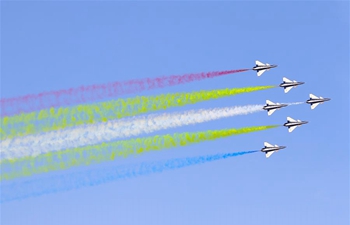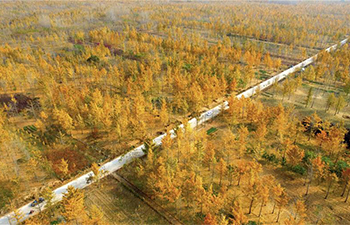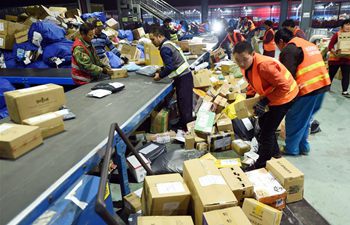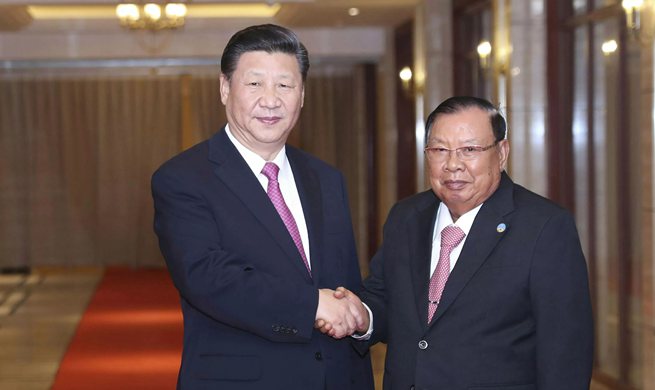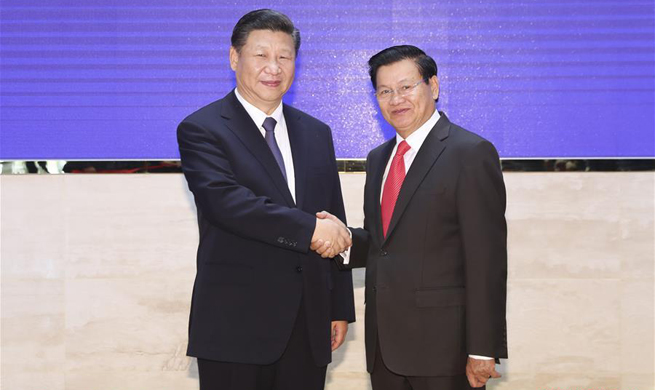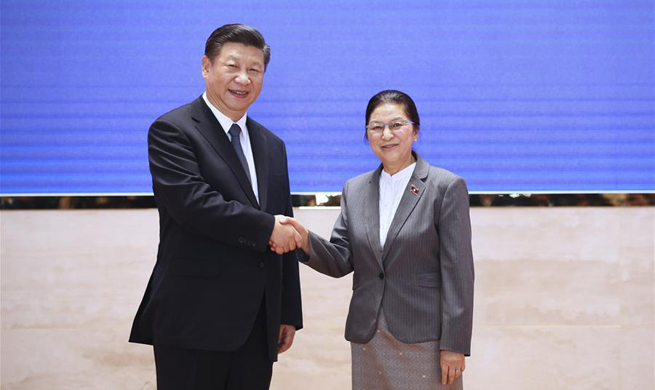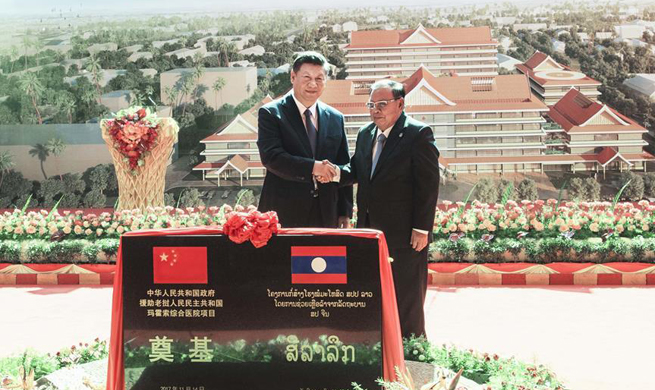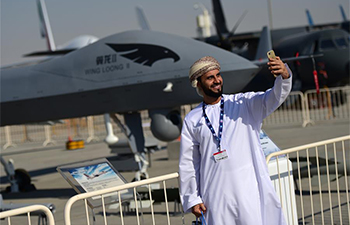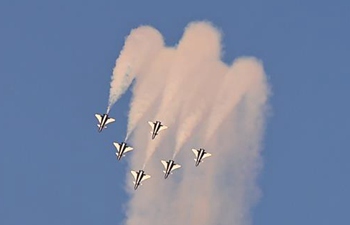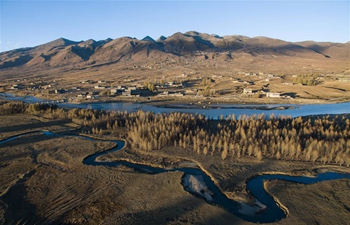SYDNEY, Nov. 15 (Xinhua) -- A "crack team" of leading scientists have begun a major mission aimed at saving Australia's iconic Great Barrier Reef.
Great Barrier Reef (GBR) Legacy is taking eight teams of scientists to map remote parts of the reef and assess the health of coral in those areas.
Their main goal is to find "super corals" which have survived devastating coral bleaching events which have occurred in the past two years.
The vessel carrying researchers on the unprecedented project, which is being supported by GBR tourism operators, departed for Horn Island, 30 kilometers northwest of mainland Australia's northernmost point, on Wednesday.
Charlie Veron, a reef expert known as the "Godfather of Coral" for his role in discovering 20 percent of the world's coral species, said the trip is "very important."
"We're actually seeing for ourselves what corals are vulnerable to mass bleaching and what corals are surviving mass bleaching," Veron told the Australian Broadcasting Corporation (ABC) on Wednesday.
"So, once we know that, we'll be able to make smart decisions about corals. It's pivotal.
"It's gut wrenching... the predictions that scientists made well over a decade ago have all turned out to be spot on," Veron said of watching the reef's degradation.
"So that's a horrible thing for us, because we wished we were wrong but so far, we haven't been."
Horn Island will be used as a base of operations for the three-week study but researchers will go as far as 200 kilometers off shore to analyze the furthest reaches of the sprawling reef.
Dean Miller, GBR Legacy's director of science, said it would be the first time much of the reef was studied since 2014 and the first time that drones and remote-controlled submarines are used in studying the GBR.
"We've assembled an absolute crack team of scientists and researchers from all over Australia, so they can work on the same reef on the same day and answer their little part of the question," Miller said.
"And that is completely unique in the way that research is done, so the level of collaboration going on between the research teams from all over Australia and even around the world is phenomenal."




